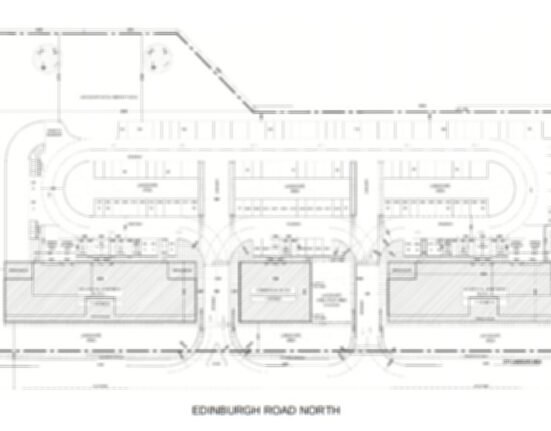Apple, Google and Amazon all have something in common: they were started in garages.
While it’s unlikely you’ll start a trillion-dollar company from one, you might be able to kick-start your property investment portfolio from this unusual source.
A typical house now costs nearly 7.2 times the average salary. This makes saving for a deposit a daunting task – but experts say that there is an often-overlooked solution to raising funds.
Garages and parking spaces can be bought much cheaper and let out without many of the regulations and costs levied on regular buy-to-lets.
‘It sounds a bit mad, but if you’re young and you haven’t got a deposit for a flat, you should buy a £10,000-£20,000 parking space,’ says Marc von Grundherr, director at London estate agent Benham & Reeves.
Mr Grundherr says spaces can be found as cheaply as £3,000-£5,000 outside London.

Returns: Demand for garages and parking spaces has been driven by the need for parking in towns and cities, electric vehicle charging needs and storage solutions
Josh Thomas-Parr, a 28-year-old trainee GP from Abergavenny in South Wales, has bought more than 40 in the past four years.
Josh got the idea after seeing a family friend invest in a house to rent out. ‘That house came with a garage across the road.
They got so much more interest for the garage that it just made me think, maybe forget the house – let’s get a garage,’ he says.
When his first garage was a success, he slowly built up a portfolio with savings – eventually transferring them into a limited company. He finds tenants using social media or word of mouth, and now has a waiting list.
Josh has a simple system to work out the rent – he cross references with a local community housing association that rents out garages and then offers a bit below its price.
One garage Josh bought from Welsh property auctioneer Sage & Co was listed at a guide price of £8,900, with a ‘tenant’ already in place that provides a return of £720 a year – an 8 per cent annual yield. This compares with a typical 5 per cent-6 per cent yield in a rental property.
If you decide to rent out a garage or parking space as an extra source of income, you will be liable for any standard personal taxes such as income tax, alongside capital gains tax if you sell at a profit.
Garages and parking space prices have also risen at the same pace as residential property prices, according to James Paterson, auctions partner at Barnard Marcus.
Demand has been driven by the need for parking spaces in towns and cities, electric vehicle charging needs and storage solutions.
‘Parking spaces in London are like gold dust. Very few businesses are allocated parking permits,’ says Mr Grundherr. ‘Demand is high in cities and every parking space and garage on our books rents out very quickly.’
Electric vehicle chargers can be installed in spaces to add even more value, according to Mr Paterson.
It can be an expensive venture, though. A charger can cost anywhere between £1,000-£2,000, according to Carwow, and you need to make sure the garage has a suitable electrical system.
You would then need to use a service such as Co Charger to allow tenants to pay to charge their cars in your garage.
Or if tenants are short on space, lock-up garages can be a cheap alternative to renting space at a storage unit.
Garages and parking spaces ‘carry far less red tape than almost another other form of property investment,’ says Mr Paterson.
This is because the rules protecting tenants, like those ensuring mould is removed or stipulating when rent can be increased, are not relevant to garages.
Mr Paterson says: ‘It is essential buyers carry out their due diligence beforehand. On the fall of the auctioneer’s gavel, a binding contract is exchanged, so make sure you have done everything before making a bid.’
Josh stresses that location is key. ‘It needs to be in a built-up area if it’s for storage or parking, because the demand for space just won’t be there in rural areas.’
And experts warn that garages are not without their pitfalls – if it is a standalone building, Ryan Saunders, auction director at Sage & Co, recommends visiting to check the essentials.
‘We’ll often sell garages that have maybe been neglected or not used for many years, so you would want to check for things like water ingress,’ he says.
And if you intend to let out the space for parking, check that the space will fit larger modern cars.
Older garages were not built with these in mind and may prove difficult to let if a family SUV doesn’t fit. These spaces may be better suited for storage.
A final note is that banks are unlikely to provide a mortgage to purchase the spaces.
A regular bank loan can be taken out, but a high interest rate could dampen any returns made by letting.
Mr Paterson says garages and parking spaces are a ‘good option with a low entry point and better returns than some other investment types but, as always, take proper advice before you commit to bidding’.
Some links in this article may be affiliate links. If you click on them we may earn a small commission. That helps us fund This Is Money, and keep it free to use. We do not write articles to promote products. We do not allow any commercial relationship to affect our editorial independence.








